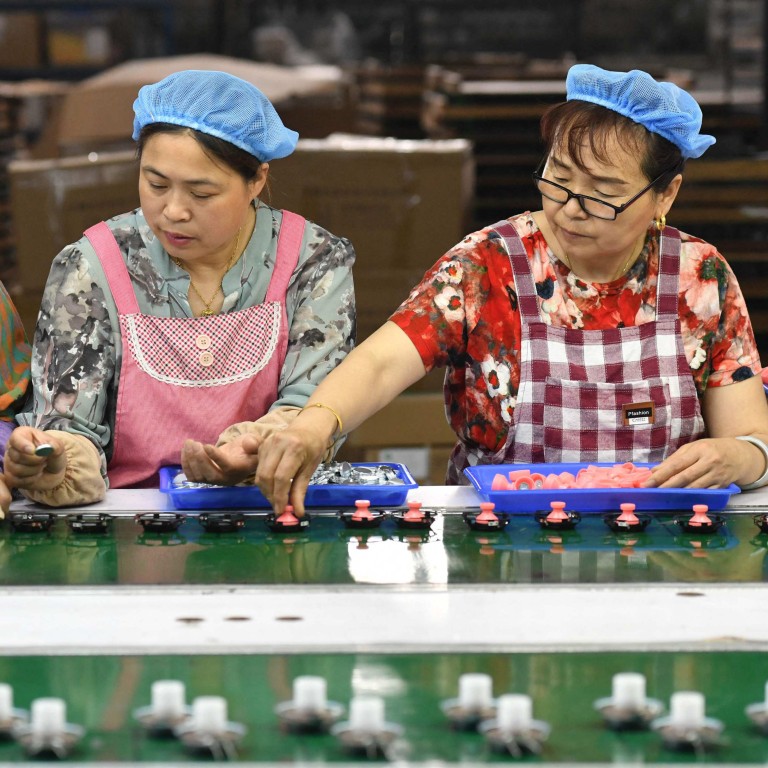
China to crack down on monopolies while improving access for foreign investors in reform push
- Beijing will amend its anti-unfair-competition law, introduce regulations under the fair-competition review system and expand market access for foreign investment
- It is eager to build a unified domestic market as part of efforts to restore investor confidence and unleash long-term growth momentum
Chinese authorities have launched a fresh campaign to crack down on unfair competition and monopolies while improving access for foreign investors, as Beijing strives to create an improved business environment to lift market sentiment and drive its economic recovery.
The State Administration for Market Regulation said on Monday that it would accelerate the launch of amendments to the current anti-unfair-competition law and introduce a new set of regulations under the fair-competition review system that was established in 2016.
The moves are seen as part of Beijing’s overriding strategy of building a unified domestic market – a key tool for Premier Li Qiang to drive China’s economic policies, restore investor confidence and unleash long-term growth momentum.
[These laws] will have a significant impact on boosting confidence in the development and the sustainability of the economy
“[These laws] will have a significant impact on boosting confidence in the development and the sustainability of the economy,” said Zhu Jianqiao, director of the comprehensive planning department at the market regulator.
“There will be more focus on market access, fair competition, credit supervision, and [intellectual property] protection. Innovative market supervision will be strengthened to catch up with developments in the business environment.”
Zhou Qiang, director of the department overseeing market system development at the Ministry of Commerce, also pledged to expand market access for foreign investment by removing existing barriers.
“[We will] coordinate and resolve respective and specific problems that are occurring to foreign companies and projects,” Zhou also said on Monday.
“[We will] also push for the quick implementation of flagship foreign projects, and support the development of foreign companies.”
‘Explore and innovate,’ Beijing says as it lets internet platforms off leash
Zhou said more items on the so-called negative list, which prohibits or restricts foreign and private investment in China, would be removed in “reasonable manner”.
Beijing stepped up its efforts to establish a unified domestic market – which focuses on building a strong domestic economy through efficient production, distribution, circulation while also curbing market-fragmentation problems – in April 2022, after it was first mentioned in 2013.
At a State Council meeting on Friday, Premier Li said “marketisation, legislation and internationalisation” of the business environment should be put in “a core position” for China’s economic recovery.
He also said that there would be policies launched in different batches to reform the business environment in the direction of a unified domestic market.
From youth joblessness to C919 and durian, 9 things from China’s economy in May
Beijing began to tighten its regulatory environment around antitrust as part of its broader push to address unfair competition, including setting up the State Administration for Market Regulation in 2018.
Alibaba, which owns the South China Morning Post, and Tencent have also been fined for failing to comply with rules on the disclosure of transactions.
However, the Chinese authorities set the tone of encouraging internet platforms and big tech to “explore and innovate” during April’s Politburo meeting.

